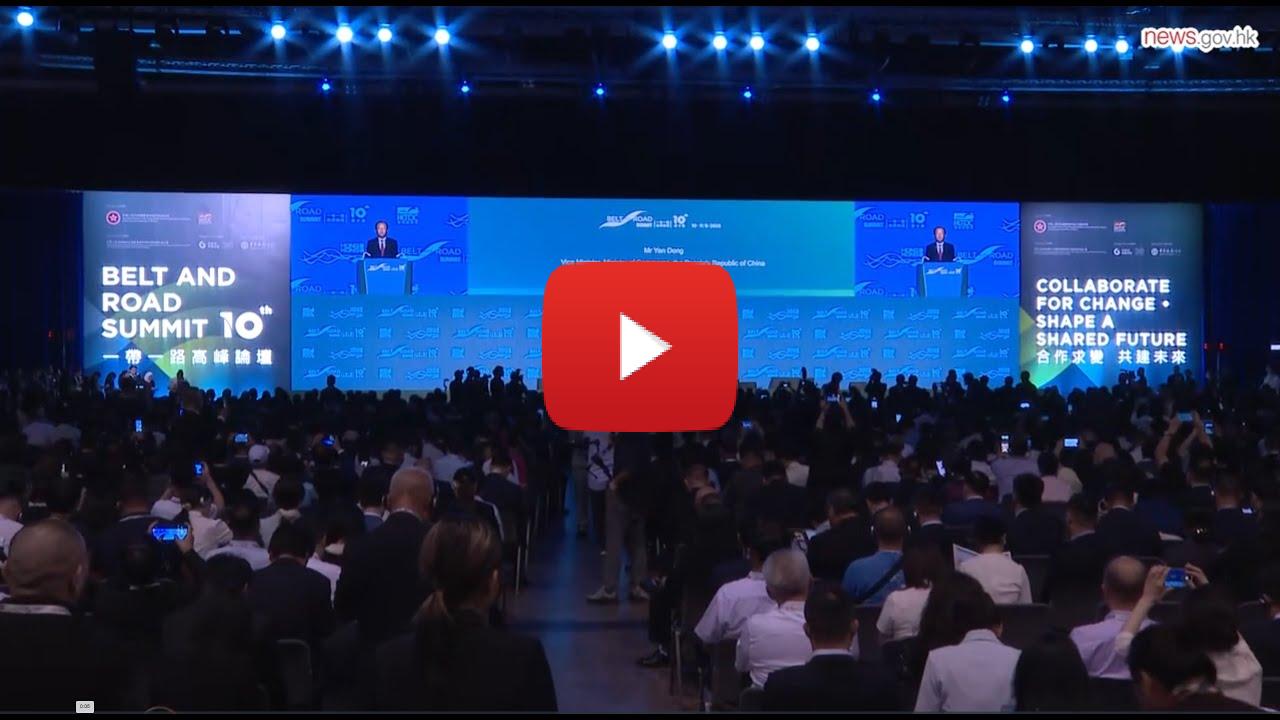In a dramatic turn of events, UK Prime Minister Keir Starmer has dismissed Peter Mandelson, the British ambassador to the United States, following the emergence of newly uncovered emails linking him to the late financier and convicted sex offender Jeffrey Epstein. The decision, announced on Thursday in the UK House of Commons by Foreign Office Minister Stephen Doughty, has sent shockwaves through British political and diplomatic circles, raising questions about vetting processes for high-profile appointments and the lingering shadow of Epstein’s influence on global elites.
The emails, published by British media outlets on Wednesday, revealed a previously undisclosed depth to Mandelson’s relationship with Epstein, including expressions of personal support and encouragement during a period when Epstein faced serious criminal charges. The revelations have prompted a swift response from the Starmer government, which has sought to distance itself from the controversy and reaffirm its commitment to integrity in public office.
The Emails That Sparked the Controversy
The emails at the heart of the scandal, dating back to the 2000s, were sent by Mandelson to Epstein during a time when the financier was under intense scrutiny for allegations of sexual misconduct involving minors. In one particularly damning message, Mandelson reportedly urged Epstein to “fight for early release” as he awaited sentencing in 2007 for soliciting prostitution from a minor, a charge that resulted in an 18-month prison sentence. Another email, quoted by British media, saw Mandelson express personal admiration, writing, “I think the world of you,” to Epstein just before the financier began serving his sentence.
These communications have cast a harsh spotlight on Mandelson, a seasoned Labour Party figure and one of the most prominent political operators in modern British history. The emails suggest a level of familiarity and support that contrasts sharply with the public’s understanding of Mandelson’s relationship with Epstein at the time of his appointment as ambassador in 2024. The Foreign Office, in defending its initial decision to appoint Mandelson, stated that the “depth and extent” of his connection to Epstein was “materially different” from what was known during the vetting process. However, the publication of the emails has forced a reevaluation of that decision, leading to Mandelson’s abrupt dismissal.
The Announcement in Parliament
Foreign Office Minister Stephen Doughty delivered the government’s statement to a packed House of Commons, where MPs from all sides listened intently to the unfolding developments. “In light of the additional information in the emails written by Peter Mandelson, the prime minister has asked the foreign secretary to withdraw him as ambassador to the United States,” Doughty declared, his tone somber yet resolute. The announcement was met with a mixture of murmurs and stunned silence, reflecting the gravity of the situation and its potential to reverberate across the Atlantic.
Doughty went on to emphasize that the decision was not taken lightly, noting that the government had acted swiftly to address the new information. “The prime minister and the foreign secretary are committed to ensuring that our diplomatic representatives uphold the highest standards of integrity,” he said. “The revelations in these emails have made it clear that Lord Mandelson’s position as ambassador is no longer tenable.”
The dismissal marks a significant embarrassment for the Labour government, which has positioned itself as a champion of transparency and accountability since taking office in July 2024. The decision to sack Mandelson, a close ally of Starmer and a key figure in Labour’s resurgence, underscores the political sensitivity of any association with Epstein, whose name remains synonymous with scandal and moral failure.
Peter Mandelson: A Political Titan
Peter Mandelson, often referred to as the “Prince of Darkness” for his political cunning and media savvy, is no stranger to controversy. A central figure in the New Labour movement under Tony Blair, Mandelson played a pivotal role in reshaping the Labour Party in the 1990s, helping to secure landslide election victories in 1997, 2001, and 2005. His career has been marked by both brilliance and scandal, with multiple resignations from government posts in the late 1990s and early 2000s over allegations of impropriety, though he consistently returned to positions of influence.
After serving as a European Commissioner for Trade from 2004 to 2008, Mandelson reentered British politics as a peer in the House of Lords and held senior cabinet positions under Gordon Brown. His appointment as ambassador to the United States in 2024 was seen as a crowning achievement, a testament to his enduring influence within Labour and his reputation as a skilled diplomat. The role placed him at the heart of the UK-US “special relationship,” tasked with navigating complex issues such as trade negotiations, defense cooperation, and transatlantic responses to global challenges like climate change and geopolitical instability.
However, Mandelson’s ties to Epstein, which were known to some extent during his vetting, have now proven to be a fatal misstep. While the Foreign Office initially believed that Mandelson’s interactions with Epstein were limited and professional, the newly revealed emails paint a picture of a more personal and supportive relationship, raising questions about his judgment and suitability for such a high-profile diplomatic post.
Jeffrey Epstein: A Name That Haunts
Jeffrey Epstein’s name continues to cast a long shadow over public life, years after his death in 2019. A financier with connections to some of the world’s most powerful individuals, Epstein’s crimes—ranging from sex trafficking to grooming underage girls—have made him a symbol of unchecked privilege and systemic failure. His ability to cultivate relationships with politicians, business leaders, and celebrities has left a trail of reputational damage for those associated with him, even tangentially.
The emails between Mandelson and Epstein are part of a broader trove of documents that have surfaced in recent years, many of which have been released through legal proceedings related to Epstein’s crimes and his network of associates. These documents have fueled ongoing public fascination and outrage, as well as demands for accountability from those who maintained ties with Epstein despite his known criminal behavior.
In Mandelson’s case, the emails suggest a willingness to overlook or downplay Epstein’s actions at a time when the financier’s legal troubles were widely reported. The message encouraging Epstein to “fight for early release” is particularly damaging, as it implies a degree of sympathy or loyalty that clashes with the gravity of Epstein’s offenses. The phrase “I think the world of you” further compounds the perception that Mandelson viewed Epstein not merely as a professional acquaintance but as a friend worthy of admiration.
The Political Fallout
The dismissal of Mandelson has sparked intense debate in the UK, with opposition parties seizing the opportunity to criticize the Labour government’s handling of the situation. Conservative Party leaders have questioned the rigor of the vetting process, arguing that Mandelson’s appointment should never have been approved given his known association with Epstein. “This is a failure of judgment at the highest levels,” said a senior Tory MP, speaking anonymously to avoid inflaming tensions. “The government must explain how someone with such questionable connections was placed in one of the most sensitive diplomatic roles.”
Meanwhile, within Labour, there is unease about the potential damage to Starmer’s leadership. The prime minister, who has sought to project an image of moral clarity and competence, now faces scrutiny over his decision to appoint Mandelson in the first place. Some Labour MPs have privately expressed concern that the controversy could undermine the party’s credibility, particularly as it seeks to rebuild public trust after years of political turmoil under previous governments.
Public reaction has been equally polarized. On social media platforms like X, posts about Mandelson’s dismissal have ranged from outrage at his ties to Epstein to defenses of his long record of public service. “Peter Mandelson’s emails to Epstein are indefensible,” one user wrote, garnering thousands of likes. “How can someone so smart be so reckless?” Another user countered, “Mandelson’s career shouldn’t be defined by a few ill-judged emails. He’s done more for this country than most.”
The controversy has also reignited discussions about the broader implications of Epstein’s network. Commentators have noted that the financier’s ability to forge connections with influential figures highlights the dangers of unchecked power and privilege. “Epstein’s story is a reminder that wealth and connections can shield individuals from accountability—for a time,” wrote a columnist in The Guardian. “Mandelson’s fall is just the latest chapter in this sordid saga.”
The Diplomatic Implications
Mandelson’s dismissal comes at a critical juncture for UK-US relations. With the United States grappling with its own political divisions and a new administration preparing to take office in January 2026, the UK ambassadorial role is pivotal in maintaining strong bilateral ties. Mandelson’s departure leaves a void in Washington, where he had been working to strengthen trade and security cooperation in the wake of Brexit and amid global uncertainties.
The Foreign Office has moved quickly to reassure allies that the transition will be smooth. A spokesperson confirmed that an interim ambassador would be appointed within days, with a permanent replacement to be named after a thorough selection process. “The UK remains committed to its partnership with the United States,” the spokesperson said. “We will ensure that our diplomatic representation in Washington reflects the values and priorities of the British people.”
In the US, the reaction has been more muted, with American officials largely refraining from public comment on what is seen as an internal UK matter. However, analysts suggest that the controversy could complicate efforts to negotiate a post-Brexit trade deal, which has been a key priority for the Starmer government. “The US will want stability and reliability from its British counterparts,” said a Washington-based think tank analyst. “This scandal risks creating a perception of disarray.”
The Broader Context: Vetting and Accountability
The Mandelson affair has prompted renewed scrutiny of the vetting processes for senior diplomatic and political appointments. Critics argue that the government’s failure to uncover the full extent of Mandelson’s ties to Epstein points to systemic weaknesses in how candidates are evaluated. “This isn’t just about one person,” said a transparency campaigner. “It’s about ensuring that those who represent the UK abroad are beyond reproach.”
In response, the Foreign Office has pledged to review its vetting procedures, with a focus on incorporating more robust checks for associations with controversial figures. “We will learn from this experience,” a senior official said. “Our goal is to ensure that all appointments reflect the highest standards of integrity and public trust.”
The scandal also raises broader questions about the lingering impact of Epstein’s network on public life. As more documents related to Epstein’s activities come to light, there is growing pressure on governments and institutions worldwide to address the fallout. In the UK, calls for a public inquiry into Epstein’s connections with British figures have gained traction, though the government has so far resisted such demands.
Mandelson’s Response and Next Steps
As of Thursday evening, Peter Mandelson had not issued a public statement addressing his dismissal or the emails. Sources close to the former ambassador suggest that he is “devastated” by the turn of events but intends to cooperate fully with any inquiries. Mandelson is reportedly considering writing a memoir to set the record straight, though it remains unclear whether he will address the Epstein controversy directly.
For now, Mandelson’s political career appears to be in tatters, though his history of resilience suggests he may yet seek to rebuild his reputation. Whether he can do so in the face of such damaging revelations remains an open question.
Conclusion
The dismissal of Peter Mandelson as UK ambassador to the United States marks a significant moment in British politics, highlighting the enduring toxicity of Jeffrey Epstein’s legacy and the challenges of navigating high-profile appointments in an era of heightened scrutiny. For Prime Minister Keir Starmer, the decision to sack Mandelson is both a necessary act of damage control and a reminder of the complexities of governing in a world where past associations can resurface with devastating consequences.
As the UK moves to appoint a new ambassador and address the fallout from this scandal, the episode serves as a stark warning about the importance of transparency, accountability, and rigorous vetting in public life. For now, the nation watches as the government seeks to restore trust and navigate the delicate balance of diplomacy and domestic politics in the shadow of one of the most notorious scandals of our time.






